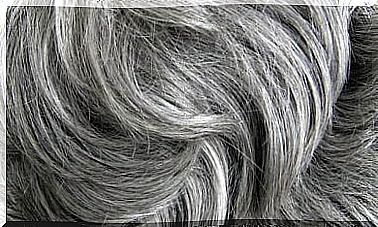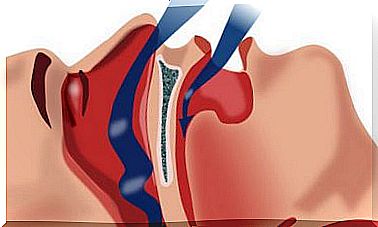How To Lose Weight When Suffering From Hypothyroidism
You should avoid foods that interfere with iodine absorption and consume a lot of fiber, nutrients that reduce appetite and which help speed up metabolic function.

The thyroid is one of the disorders that affect the thyroid gland, which is responsible for the metabolism and the secretion of various hormones essential to the overall functioning of the body.
This condition occurs when the body no longer secretes enough thyroid hormone, which slows down the metabolism. People who suffer from it find it very difficult to maintain a healthy and stable weight.
In most cases, this pathology affects women over the age of 50. However, it can occur in younger women, or even in men in rarer cases.
The most common cause of this disease is inflammation, which damages the cells of the thyroid gland. It therefore originates from the immune system’s response to attacks from viral infections or during pregnancy, for example.
Most of those affected gain weight and suffer from other health problems. However, it has been shown that by adopting healthy lifestyles, it is possible to counter the negative effects of the disease, and thus prevent it from affecting too significantly the quality of life of patients who suffer from it. are touched.
In this article, we give you some key tips that should help you lose weight if you have hypothyroidism.
Some keys to improving your diet in case of hypothyroidism
After being diagnosed with hypothyroidism, it is essential to improve your lifestyle habits, especially your diet, the main key to avoiding continuing to gain extra pounds.
The idea is to lose weight gradually by following a diet that respects the needs of the body, in order to achieve a healthy and stable weight. According to experts from the Spanish Heart Foundation, there is no diet specifically suited to hypothyroidism. However, they believe that a varied, balanced, complete and low-fat diet can be particularly beneficial for people with the disease.
They also point out the importance of consulting a nutritionist so that the latter can design a personalized nutritional program, namely a program adapted to the needs of the body and to the patient’s medium and long-term goals.
1. Choose healthy fats
It’s not about cutting fat out of your diet completely, but about choosing foods that contain healthy fats and are therefore easier to metabolize.
Among these foods are:
- lean meats
- white fish
- olive oil
- coconut oil
- seeds
2. Prefer whole foods
All foods that contain refined flours should be replaced with their wholemeal flour equivalents.
- All whole foods are much healthier: they help prevent fat build-up and increase blood sugar levels.
3. Increase your water consumption

Drinking enough water per day is crucial to avoid dehydration, but also to promote the expulsion of waste.
This liquid should not be replaced by others, and even less by sodas or industrial fruit juices.
4. Dine light
Eating right before going to sleep is not a good idea, especially if you eat foods that are difficult to digest.
It is best to cook a light meal that is low in fat and protein. Eat dinner at least two or three hours before you go to bed.
5. Avoid certain foods
With hypothyroidism, foods that contain biogens should be avoided. Biogens are substances that inhibit the absorption of iodine, thus negatively influencing the functioning of the thyroid gland.
Among these foods are:
- the corn
- soybean
- the melon
- the lawyer
- the radishes
- the peanuts
- Brussels sprouts
- cauliflower
- broccoli
6. If you have hypothyroidism, eat more fiber
Foods high in fiber are essential for anyone battling hypothyroidism.
- Fiber strengthens the digestive process and improves bowel movement, so it helps prevent constipation and inflammation.
- Fiber has been shown to reduce appetite. They therefore play an important role in metabolic functioning.
7. Exercise frequently

To complement the effects of the diet, it is essential to adopt a daily exercise routine of at least 40 minutes.
Some people with hypothyroidism become less active because of their condition, but this condition should not prevent them from exercising on a daily basis. A low impact exercise program can have positive effects in these patients.
Among the best exercises are :
- the swimming
- the race
- weight lifting
- the bike
- brisk walking
8. Avoid fasting
Many people think that fasting is the best way to lose weight fast, but that’s a mistake. Every morning, our body needs to recharge its energy to function throughout the day.
By skipping the first meal of the day, the metabolism has no fuel to start, and a terrible feeling of hunger can develop during the morning.
Discipline and consistency, the two keys to losing weight
Motivation plays an essential role when it comes to losing weight, especially with hypothyroidism. Showing discipline and consistency is fundamental to maintaining motivation.
With good motivation, you will be able to maintain a good lifestyle, a healthy weight and good overall physical shape over the long term.









